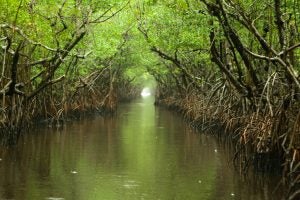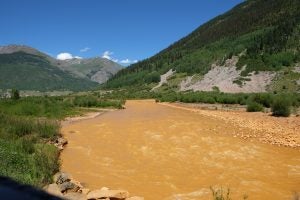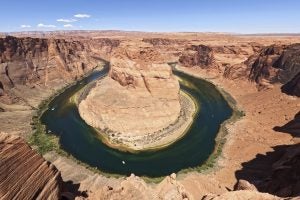 January 14, 2026
by Maggie Zendehrouh
Natural Resources
Water
January 14, 2026
by Maggie Zendehrouh
Natural Resources
Water
'Alligator Alcatraz' — How a Florida detention center in the Everglades may sidestep NEPA, risking irreversible harm to a fragile ecosystem and public water supply.
 October 31, 2025
by Spencer V. Woodall
Federal Rollbacks
Torts
Water
October 31, 2025
by Spencer V. Woodall
Federal Rollbacks
Torts
Water
While recent decisions curtail centralized regulatory authority in pollution enforcement, Americans can regulate pollution by exercising private property rights.
 March 27, 2025
by Cameron Bonnell
Legislation
Litigation
Water
March 27, 2025
by Cameron Bonnell
Legislation
Litigation
Water
Citizen suits have been a powerful engine of environmental enforcement for over half a century. As the bounds of executive power are reimagined, challenges under Article II of the Constitution threaten their viability.
 March 13, 2025
by Helen Ma
Natural Resources
Regulations
Water
March 13, 2025
by Helen Ma
Natural Resources
Regulations
Water
The Supreme Court ruled that the EPA exceeded its authority under the Clean Water Act by imposing broad “end-result” permit requirements, marking a significant post-Chevron shift in environmental law.
 March 11, 2025
by Isaac Worsham
Litigation
Natural Resources
Regulations
Water
March 11, 2025
by Isaac Worsham
Litigation
Natural Resources
Regulations
Water
The Supreme Court has assumed the mantle of “expert” decisionmaker—contravening the meaning and intention of the Clean Water Act, overruling decades of precedent, and limiting EPA’s ability to carry out their congressionally assigned and executive-directed duties.
 January 12, 2025
by Olivia Sullivan
Regulations
Water
January 12, 2025
by Olivia Sullivan
Regulations
Water
A Biden-Harris Administration EPA rule recently went into effect that will help to remove lead from drinking water. The Lead and Copper Rule Improvements require water systems to replace lead pipes across the country, and this huge public works project is backed by over $2.6 billion in infrastructure funding.
 October 3, 2024
by Berit DeGrandpre
Regulations
State and Local
Water
October 3, 2024
by Berit DeGrandpre
Regulations
State and Local
Water
The Supreme Court will hear a challenge to a pollution discharge permit issued by EPA under the Clean Water Act. The case raises questions of statutory interpretation, administrative, and environmental law that have been hot topics at the Supreme Court in recent terms.
 April 17, 2024
by John Powers
Chemicals
Regulations
Water
April 17, 2024
by John Powers
Chemicals
Regulations
Water
EPA has been working quickly to regulate PFAS across the United States. The National Primary Drinking Water Regulation for PFAS is now finalized, and more final rules are right around the corner.
 December 4, 2023
by Bill Shultz
Regulations
State and Local
Water
December 4, 2023
by Bill Shultz
Regulations
State and Local
Water
Concentrated animal feeding operations are explicitly named as a point source under the Clean Water Act, but the EPA has been woefully ineffective at monitoring and regulating manure discharges, leaving water and human health at risk.
 April 10, 2023
by Benjamin Wilken
State and Local
Water
April 10, 2023
by Benjamin Wilken
State and Local
Water
The American West is dry. Despite extreme weather events like the series of atmospheric rivers that doused the West Coast (from late 2022 until the time of this piece’s composition), capable of dumping up to half an inch of rain an hour,[1] the overall…









